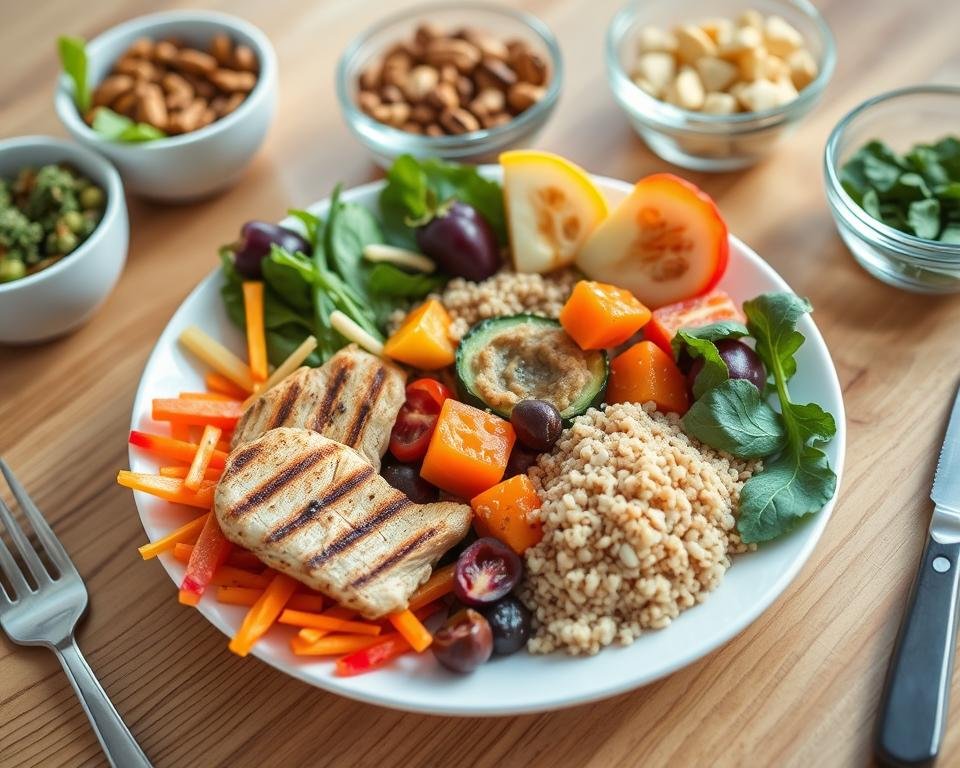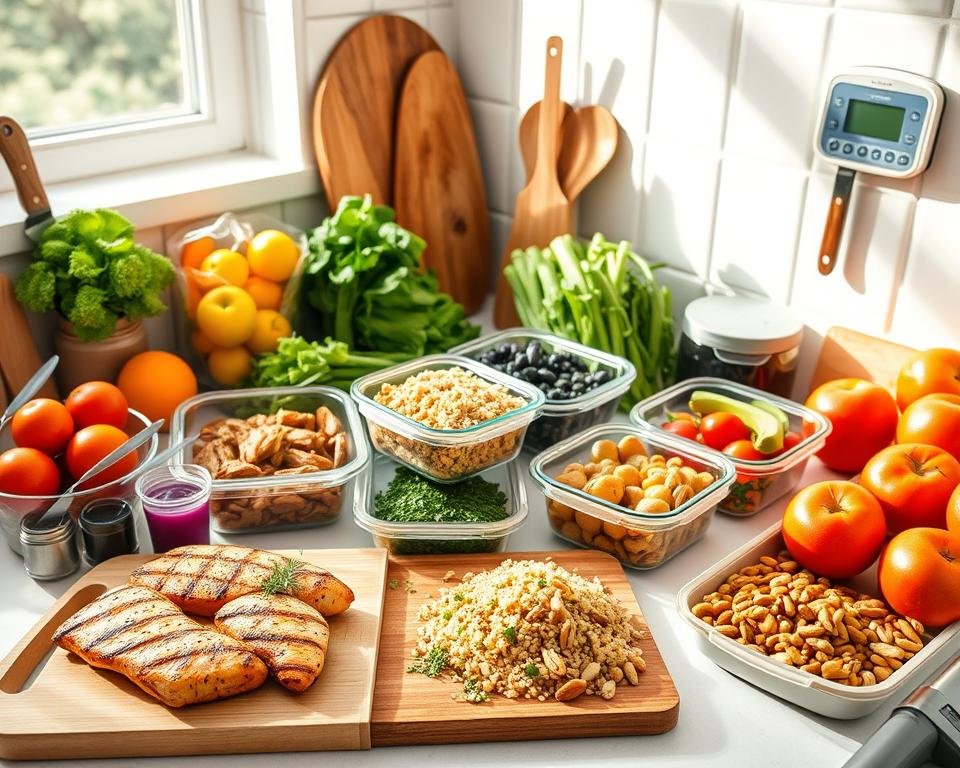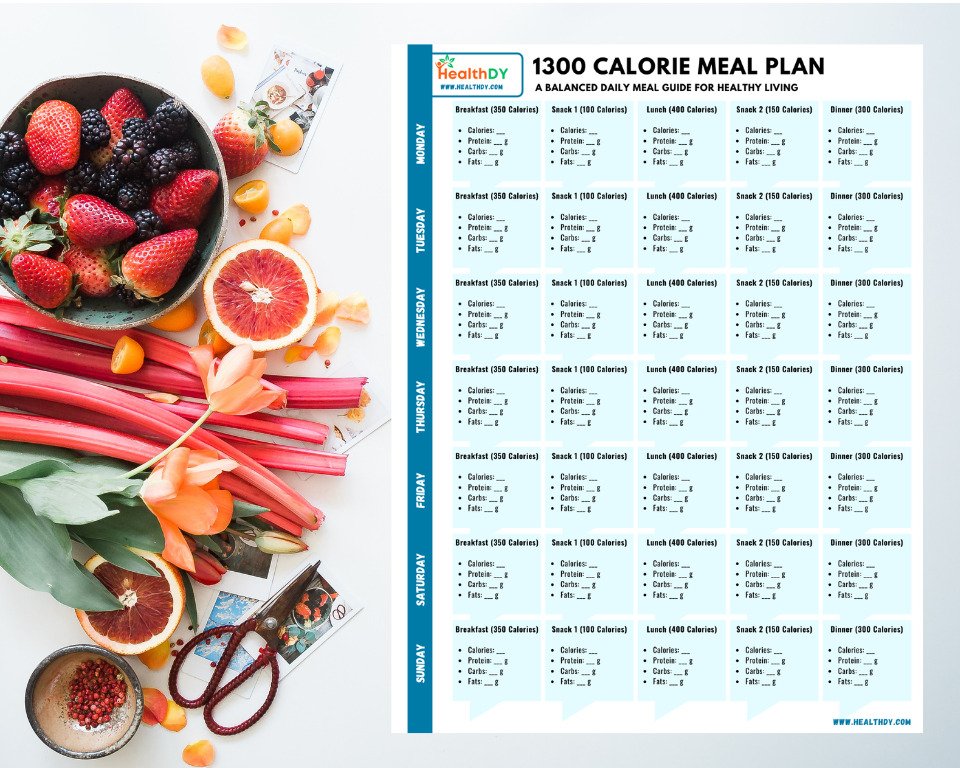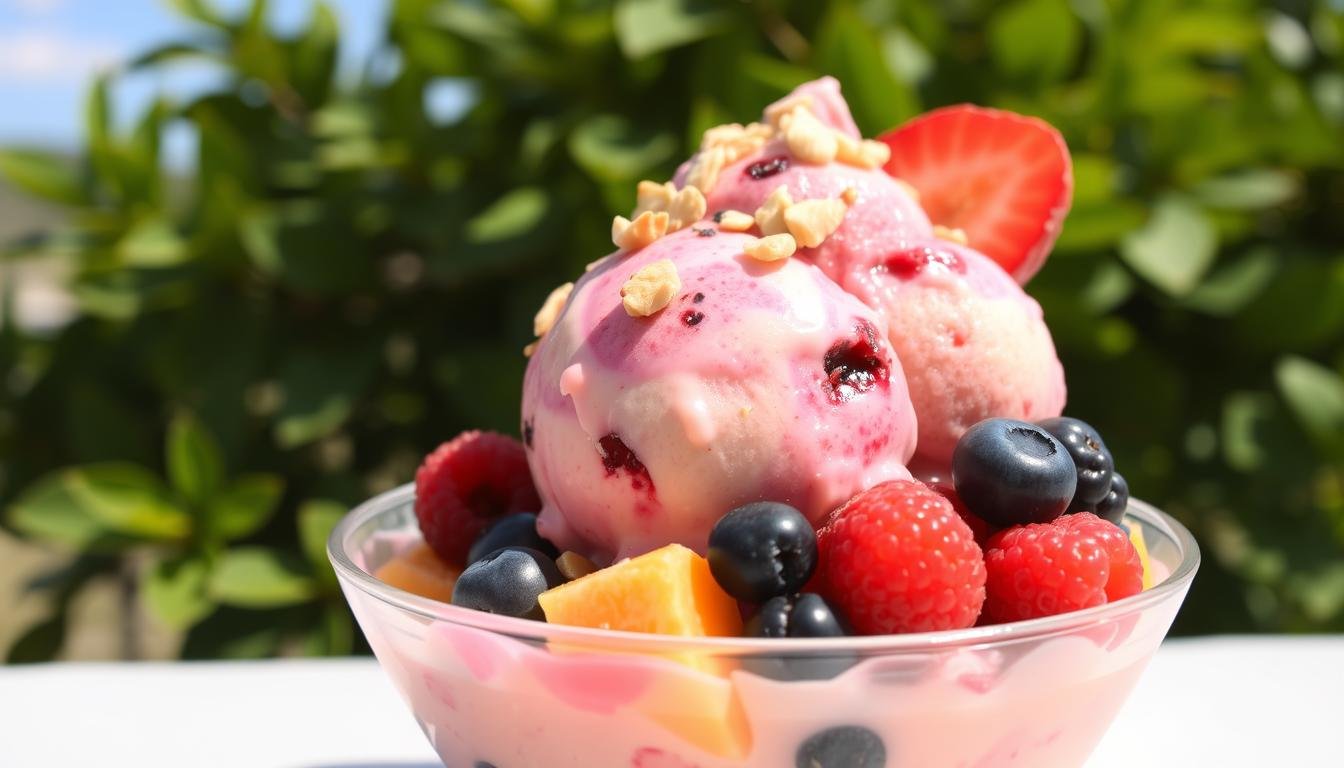Starting a 1300-calorie meal plan can be a big step towards losing weight. This plan offers meals and snacks that are low in calories but full of nutrients. It’s perfect for anyone looking to lose a few pounds or just eat healthier.
Each meal in this plan has about 300 to 350 calories. Snacks have 100 to 150 calories. This way, you get the right nutrients all day without feeling hungry or tired.
This meal plan is best for people who don’t exercise much. Always talk to a doctor or dietitian before starting. With their help, the 1300-calorie meal plan can be a great way to lose weight.
1300 Calorie Meal Plan PDF downloadable version
In the quest for weight loss and healthier eating habits, many people turn to structured meal plans to simplify their journey. One popular choice among those aiming to shed pounds is the 1300 calorie diet meal plan. This plan is designed to provide a balanced intake of nutrients while keeping calories in check, making it particularly appealing for those looking to lose weight without compromising their overall health. For those intrigued by this approach, there is a downloadable 1300 calorie meal plan PDF that offers a week’s worth of meals, recipes, and snacks to help you stay on track.
Understanding the Basics of a 1300 Calorie Diet
A 1300-calorie diet is for quick weight loss. It’s good for those who want to lose weight without exercising much. You can lose weight and control your portions by eating fewer calories. Check out this diet meal plan to see how it works.
Who Should Follow This Diet Plan
This diet is for adults who are overweight or obese and don’t exercise much. But, it’s not for everyone. Pregnant or breastfeeding women, people with eating disorders, or certain health conditions should avoid it. Always talk to a doctor before starting a diet.
Benefits and Potential Risks
Following a 1300 calorie restriction diet can help you lose weight and control your portions. A study showed that people on this diet lost a lot of weight. But, it might lead to nutrient deficiencies if not planned well. A registered dietitian can help make sure you get all the nutrients you need.
Daily Nutritional Requirements
When on a 1300-calorie diet, make sure you get all the nutrients you need. Drink lots of water and consider taking supplements. Eat whole grains, leafy greens, vegetables, fruits, low-fat dairy, and lean protein. Avoid junk foods and high-calorie drinks.

“Following a 1300-calorie diet may not be suitable for everyone and might not be a sustainable long-term approach, even for active individuals or those with specific health conditions.”
– Eleana Kaidanian, RD
Getting Started with Your 1300 Calorie Meal Plan
Starting a 1300 calorie meal plan means you need to plan your meals well. You should focus on foods that are full of nutrients and control your portions. Planning ahead helps you stay within your calorie limit and get all the nutrients you need.
It’s important to eat a variety of foods from different groups like protein, carbs, and healthy fats. This mix will keep you full and give you energy all day. Use measuring tools and check nutrition labels to count calories accurately.
- Begin by planning your meals for the week. Mix quick, easy dishes with more complex recipes.
- Include lean proteins like chicken, fish, or plant-based options. Also, add lots of fresh veggies and fruits.
- Use cups, spoons, or a food scale to measure your food. This helps you stick to your 1300 calorie goal.
- Try healthy fats like avocado, nuts, and olive oil. They add flavor and make you feel full.
- Drink lots of water all day. Cut down on sugary drinks.
By following these steps, you’ll be on the right path to a successful 1300 calorie meal plan. It will help you reach your health and wellness goals.
“Proper meal planning is the key to success on a 1300 calorie diet. It allows you to control your portion sizes and ensure you’re getting all the essential nutrients your body needs.”
Essential Nutrients and Macronutrient Distribution
On a 1300-calorie diet, getting the right mix of macronutrients is key. This includes protein, carbohydrates, and healthy fats. It helps your body get the nutrients it needs while keeping calorie intake in check.
Protein Requirements
Protein should be 20-30% of your daily calories. Good sources are lean meats, fish, eggs, and plant-based options like beans and tofu. Make sure to have protein in every meal and snack.
Carbohydrate Balance
Carbs should be 45-65% of your calories. Choose complex carbs from whole grains, veggies, and fruits. They give lasting energy and important vitamins. Avoid added sugars and refined carbs to prevent blood sugar issues.
Healthy Fats Selection
Healthy fats should be 20-35% of your calories. Include avocados, nuts, seeds, olive oil, and fatty fish. They help you feel full. But, cut down on saturated and trans fats for better health.
By keeping your macronutrients balanced, you ensure your body gets the right macronutrients, nutrient-dense foods, and nourishment. This is vital for a healthy 1300-calorie balanced diet.
“Proper macronutrient balance is the key to a healthy and sustainable 1300-calorie diet plan.”
Meal Planning and Preparation Tips
Creating a 1300-calorie meal plan is more than just counting calories. It’s about planning, preparing, and saving time. By being proactive with meal prep, you can make healthy eating easier and more enjoyable.
Begin by making a weekly menu with whole, unprocessed foods. This ensures you get the nutrients you need and keeps meals exciting. Using batch cooking and leftovers can make meal prep faster.
Try different cooking methods like grilling, roasting, and steaming. These methods help keep your food nutritious and low in calories. A mix of protein, carbs, and fats makes your meals balanced and satisfying.
| Meal | Calories | Protein (g) | Carbs (g) | Fat (g) |
|---|---|---|---|---|
| Breakfast | 439 | 24 | 62 | 15 |
| Lunch | 379 | 45 | 17 | 16 |
| Dinner | 479 | 33 | 24 | 4 |
| Snack | 184 | 10 | 23 | 0 |
Follow these tips to make healthy eating easier and enjoy a balanced 1300-calorie meal plan. It will fit well into your daily life.

Breakfast Options on a 1300 Calorie Plan
Creating a healthy breakfast within a 1300-calorie meal plan is fun. Focus on low-calorie breakfast options that are full of nutrients. This will keep you full until lunchtime. There are many healthy breakfast choices to start your day.
Quick and Easy Breakfast Ideas
When time is short, quick low-calorie breakfast options save the day. Try oatmeal with fresh berries and nuts for a filling meal, about 300 calories. Egg white omelets with veggies are another quick breakfast that’s great on the go.
Make-Ahead Breakfast Recipes
Make breakfast ahead to save time during busy weekdays. Overnight oats or chia pudding are tasty and healthy. They can be topped with your favorite ingredients. Breakfast burritos or frittata muffins are also good make-ahead breakfast ideas, packed with protein.
Protein-Rich Morning Meals
Choose breakfasts with plenty of protein to stay full and energized. Greek yogurt parfaits with fruit and granola are a great protein-rich breakfast choice. Another option is egg muffins with lean turkey or spinach for a nutritious start.
Whatever healthy breakfast you pick, aim for 300-350 calories. This helps you stay on track with your 1300-calorie daily goal.
Lunch and Dinner Combinations
Creating balanced meals for a 1300-calorie diet is easy. When planning your healthy lunch ideas and low-calorie dinners, aim for a mix of proteins, complex carbs, and healthy fats.
For lunch, think about grilled chicken salads, turkey sandwiches on whole-wheat, or vegetable stir-fries with tofu. These meals are around 300 to 350 calories, keeping you within your daily calorie goal. Soups and stews are also great, filling, and low-calorie choices for lunch or dinner.
Dinner can include lean proteins like fish or skinless chicken breast with roasted veggies and a small whole grain portion. The goal is to have a balanced plate, ensuring each part adds to a nutritious meal.
By focusing on nutrient-dense, low-calorie options for your lunch and dinner combinations, you can stick to a 1300-calorie meal plan. This supports your health and weight management goals.
Smart Snacking Strategies
Snacking is key to a balanced 1300-calorie meal plan. Healthy, low-calorie snacks keep your energy up and hunger in check. They help you avoid eating too much at meals. Look for snacks with protein, healthy fats, and complex carbs.
100-150 Calorie Snack Options
Choose snacks with 100 to 150 calories for your 1300-calorie diet. Here are some tasty and nutritious picks:
- A medium apple with 1 tablespoon of almond butter
- Greek yogurt topped with fresh berries
- Carrot or celery sticks with 2 tablespoons of hummus
- A handful of raw nuts, such as almonds or walnuts
- A hard-boiled egg and a small piece of whole-grain toast
Timing Your Snacks
When you snack can affect your energy and how full you feel. Think about your day and how active you are. A snack between lunch and dinner can stop you from eating too much later. Snacking before or after exercise gives you the energy you need.
Always pick healthy snacks that fit your 1300-calorie plan. They should help you reach your health and wellness goals.
Hydration and Beverage Guidelines
Drinking enough water is key when you’re on a 1300-calorie diet. Women should aim for 9 cups of water daily, while men should aim for 13 cups. Stick to calorie-free drinks like water, unsweetened tea, and black coffee. Stay away from sugary drinks and limit alcohol, as they can add a lot of calories.
If you want to add flavor, try adding lemon, cucumber, or mint to your water. Remember, the calories in drinks count towards your daily total. Make sure to include them in your calorie budget.
“Staying hydrated is key for health and can help with weight loss. Choose water, tea, or coffee over sugary drinks to keep calories low.”
Drinking enough water is not just good for your body. It also helps with weight loss. By focusing on calorie-free drinks and water intake, you keep your body working well. This makes your 1300-calorie diet both healthy and sustainable.
Conclusion
The 1300-calorie meal plan can be a good start for sustainable weight loss. It focuses on balanced nutrition and portion control. This helps you develop healthier eating habits for the long run.
Think of this plan as a starting point, not a permanent fix. Always talk to a healthcare professional or a registered dietitian before starting any diet. They can make sure the plan fits your needs and health status.
By following the tips in this guide, you can improve your relationship with food. You’ll make choices that help you lose weight and stay fit. Start nourishing your body and mind on a path to a healthier, happier you.
FAQ
What is a 1300-calorie meal plan?
A 1300-calorie meal plan is for losing weight, mainly for those who don’t exercise much. It includes three meals and two snacks daily. Each meal has 300 to 350 calories, and snacks have 100 to 150 calories.
The foods are rich in nutrients but low in calories. This ensures you get all the vitamins and minerals you need.Who should follow a 1300-calorie diet?
A 1300-calorie diet is for quick weight loss. It’s good for those who don’t exercise regularly. But, it’s not for pregnant or breastfeeding women, or those with eating disorders.
What are the benefits and possible risks of a 1300-calorie diet?
Benefits include losing weight and learning to control portions. But, there’s a risk of not getting enough nutrients. It’s important to plan your diet carefully to avoid this.
How do I start a 1300-calorie meal plan?
To start, plan your meals ahead. Choose foods that are full of nutrients. And, remember to control your portions.
Planning your meals helps you stay within your calorie limit. It also makes sure you get all the nutrients you need.What is the optimal macronutrient distribution for a 1300-calorie diet?
On a 1300-calorie diet, focus on the right mix of macronutrients. Protein should be 20-30% of your calories. Carbs should be 45-65%, and healthy fats 20-35%.
What are some tips for effective meal planning on a 1300-calorie diet?
Effective meal planning means creating a weekly menu and a grocery list. Prepare meals in advance. Use simple recipes with common ingredients.
Batch cooking and using leftovers can save time. It also helps you stick to your meal plan.What are some healthy breakfast options for a 1300-calorie plan?
Breakfasts should be full of nutrients and keep you full. Try oatmeal with fruits and nuts, or egg white omelets with veggies. Overnight oats or chia pudding are great make-ahead options.
Choose protein-rich breakfasts like Greek yogurt parfaits or turkey and veggie egg muffins. They help you stay full in the morning.What are some balanced lunch and dinner combinations for a 1300-calorie diet?
Lunch and dinner should have a good mix of proteins, carbs, and fats. Try grilled chicken salads, turkey sandwiches on whole wheat, or vegetable stir-fries with tofu.
For dinner, lean proteins like fish or skinless chicken breast are good. Pair them with roasted veggies and a small whole grain portion.What are some smart snacking strategies for a 1300-calorie meal plan?
Snacks should be 100-150 calories. Options include a medium apple with almond butter, Greek yogurt with berries, or veggie sticks with hummus. Snacking between meals keeps your blood sugar steady and prevents overeating.
How important is hydration on a 1300-calorie meal plan?
Hydration is key on a 1300-calorie diet. Aim for 9 cups of water a day for women and 13 cups for men. Stick to calorie-free drinks like water, unsweetened tea, and black coffee.
Avoid sugary drinks and limit alcohol. They can add a lot of calories.



